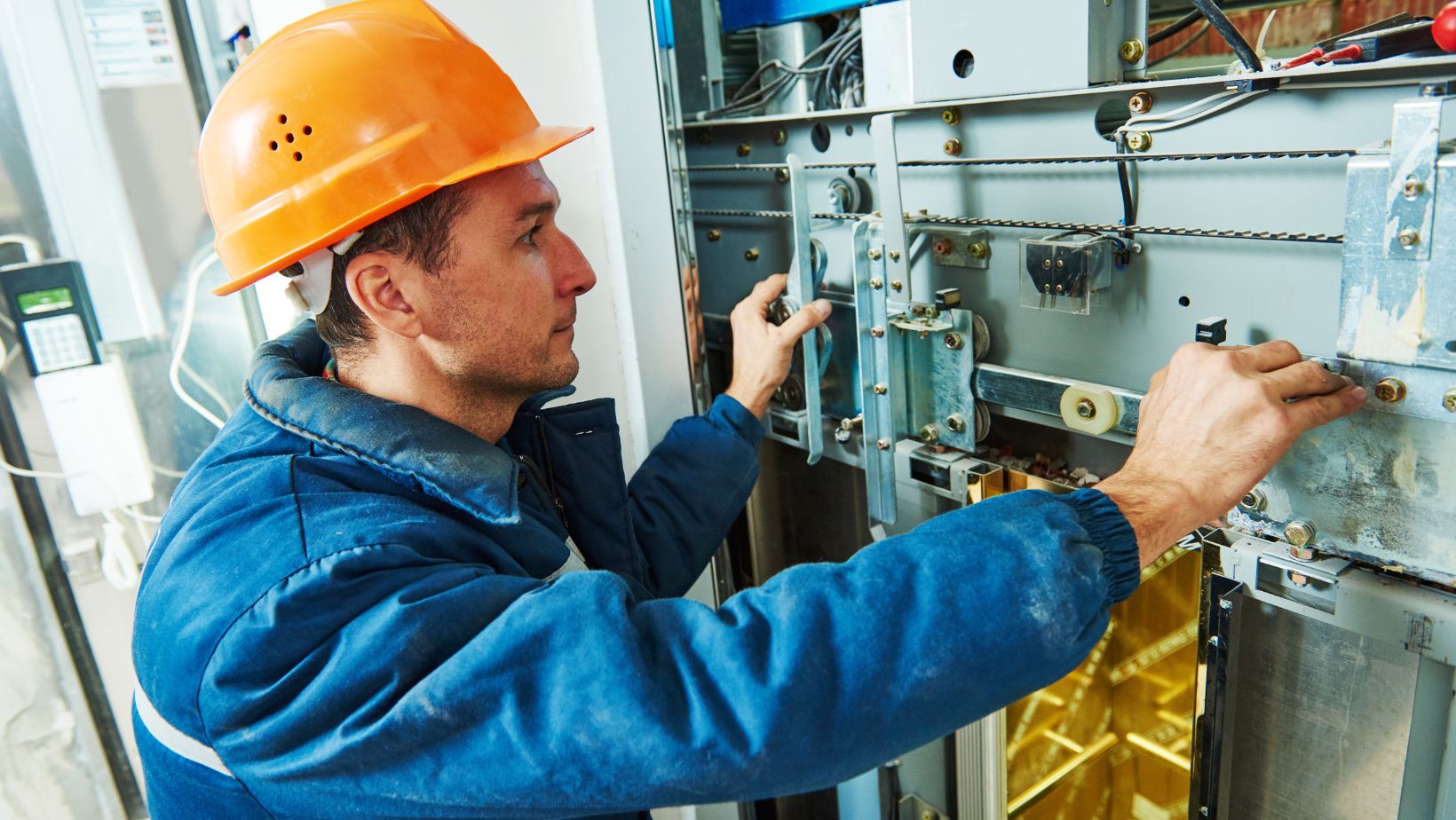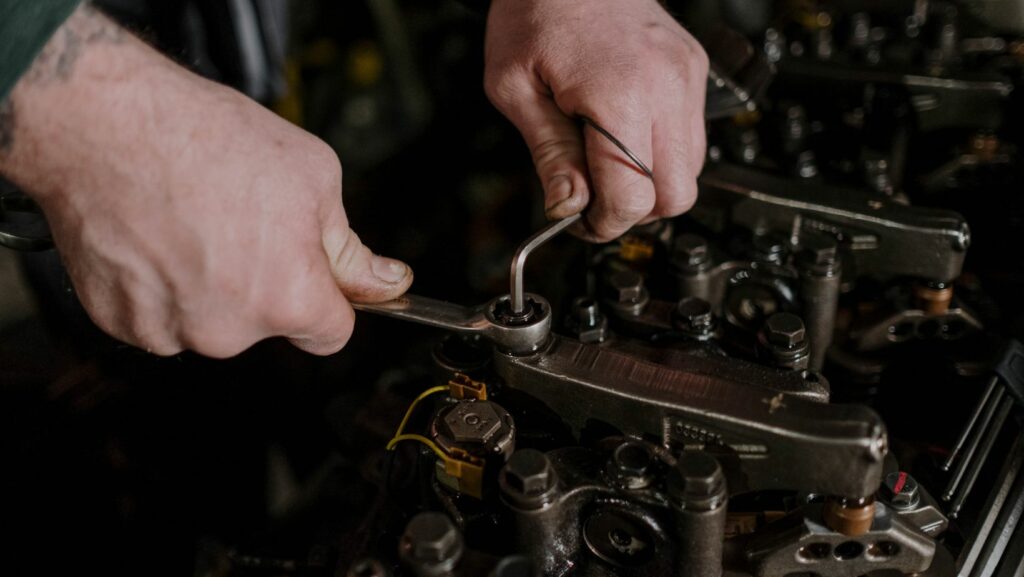Key Takeaways
- Role of Electro-Mechanical Technicians: These technicians bridge electrical and mechanical systems, ensuring the efficient operation of various machinery across industries.
- Growing Demand: The need for electro-mechanical technicians is on the rise due to increasing automation and advanced technologies in sectors such as manufacturing, aerospace, and energy.
- Essential Skills: Key competencies include circuit logic, hydraulic and pneumatic systems knowledge, robotics familiarity, and diagnostic tool proficiency.
- Educational Pathways: Typically, an associate degree in electro-mechanical technology or vocational training is required, along with relevant certifications to enhance job prospects.
- Positive Job Outlook: Employment for electro-mechanical technicians is projected to grow by 6% from 2021 to 2031, reflecting a strong demand for skilled workers in the field.
- Diverse Industry Opportunities: Technicians find careers in various sectors including manufacturing, aerospace, energy, automotive, and healthcare, offering multiple pathways for specialization and advancement.
In today’s tech-driven world, electro-mechanical technicians play a crucial role in keeping industries running smoothly. These skilled professionals bridge the gap between electrical and mechanical systems, ensuring that complex machinery operates efficiently. With their expertise, they troubleshoot, maintain, and repair a variety of equipment, from robotics to manufacturing tools.
As automation and advanced technologies evolve, the demand for electro-mechanical technicians continues to rise. Companies rely on their specialized knowledge to enhance productivity and minimize downtime. This article explores the vital responsibilities of these technicians, the skills required for success, and the promising career opportunities that await those who enter this dynamic field.
Electro-Mechanical Technicians
Electro-mechanical technicians play a crucial role in the integration of electrical and mechanical systems. These professionals work on a variety of equipment, including robotics, machinery, and automated production lines. Responsibilities include troubleshooting, maintaining, and repairing complex systems to ensure operational efficiency.
Electro-mechanical technicians typically require a mix of skills in electronics and mechanics. This includes understanding circuit logic, hydraulic systems, and pneumatic systems. Educational paths often involve vocational training or associate degrees in electro-mechanical technology.
The demand for electro-mechanical technicians is growing rapidly. Industries such as manufacturing, aerospace, and energy increasingly rely on automation and smart technologies. This trend drives the need for technicians who can bridge the gap between electrical and mechanical components. Career opportunities include positions in maintenance, manufacturing engineering, and technical support, often with competitive salaries and advancement potential.
Roles and Responsibilities

Electro-mechanical technicians play a crucial role in maintaining and enhancing the performance of electrical and mechanical equipment across various industries. Their responsibilities encompass a range of tasks that ensure machinery operates optimally.
Maintenance Duties
Electro-mechanical technicians perform routine maintenance on various systems. They check for wear and tear, replace faulty components, and lubricate moving parts. Technicians also develop preventive maintenance schedules to minimize downtime. Documentation of maintenance activities helps identify patterns that may indicate larger issues.
Installation Tasks
Electro-mechanical technicians handle the installation of new equipment and systems. They interpret blueprints and technical diagrams to accurately position and secure machinery. Technicians connect electrical wiring and plumbing to ensure systems function as intended. They conduct initial tests to verify performance standards before finalizing installations.
Troubleshooting Procedures
Electro-mechanical technicians diagnose equipment malfunctions systematically. They employ diagnostic tools and techniques to identify root causes of issues. Technicians analyze error codes and inspect physical components to pinpoint failures. After diagnosis, they implement effective solutions to restore machinery functionality.
Skills and Qualifications
Electro-mechanical technicians require a combination of technical skills, education, and certifications to excel in their field. Mastery of these competencies ensures effective performance in various industrial settings.
Technical Skills
- Circuit Logic: Understanding of electrical circuits and logic, essential for troubleshooting and repairing machinery.
- Hydraulic Systems: Proficiency in hydraulic systems, enabling efficient operation and maintenance of equipment that relies on fluid power.
- Pneumatic Systems: Expertise in pneumatic systems, which facilitates the use of compressed air for mechanical operations.
- Robotics Knowledge: Familiarity with robotic systems, including the ability to program and troubleshoot robotic components.
- Diagnostic Tools: Skillful use of diagnostic tools for identifying and solving equipment malfunctions, ensuring minimal downtime.
- Blueprint Interpretation: Ability to read and interpret blueprints and schematics, crucial for installation and maintenance tasks.
Educational Requirements
Electro-mechanical technicians typically require an associate degree in electro-mechanical technology or a related field. Vocational training programs also provide necessary skills. Coursework often includes:
- Mathematics: Courses in mathematical principles relevant to engineering and technology.
- Electronics: Studies focusing on electronic components and systems, enhancing understanding of circuit functionality.
- Mechanical Engineering Fundamentals: Training in mechanics, thermodynamics, and materials science to support mechanical system comprehension.
Certifications
Certifications enhance job prospects and demonstrate expertise in specific areas. Relevant certifications include:
- Certified Maintenance and Reliability Technician (CMRT): Validates skills in maintenance and reliability principles.
- National Institute for Certification in Engineering Technologies (NICET) Certification: Offers specialization in various engineering technology fields.
- Electronics Technicians Association (ETA) Certification: Recognizes proficiency in electronics, instrumental for technicians in their roles.
Acquiring these qualifications equips electro-mechanical technicians with the knowledge and skills required to support the industry’s evolving demands.
Job Outlook and Opportunities

Electro-mechanical technicians enjoy a positive job outlook, driven by technological advancements and increased automation across various sectors. Employment opportunities in this field continue to expand, reflecting the growing reliance on skilled technicians.
Employment Statistics
According to the U.S. Bureau of Labor Statistics, the employment of electro-mechanical technicians is projected to grow by 6% from 2021 to 2031, which is faster than the average for all occupations. As of 2022, there were approximately 85,000 electro-mechanical technician positions in the United States. Industries incorporating automation technology, such as manufacturing and aerospace, significantly contribute to this demand. Job opportunities will arise from the need to replace technicians who retire or leave the industry, further enhancing the growth prospects.
| Year | Employment Projection | Growth Rate |
|---|---|---|
| 2021 | 85,000 | 6% (2021-2031) |
| 2031 | Estimated 90,100 | Faster than average |
Industries Hiring Electro-Mechanical Technicians
Electro-mechanical technicians find employment in various industries, each offering unique opportunities. Key sectors include:
- Manufacturing: Technicians maintain and repair robots and automated machinery in production facilities.
- Aerospace: Technicians support the design and maintenance of aircraft systems, integrating mechanical and electronic components.
- Energy: Technicians work on power generation and distribution systems, ensuring the reliability of electrical and mechanical equipment.
- Automotive: Technicians are critical for developing and maintaining automated assembly lines in vehicle manufacturing.
- Healthcare: Technicians maintain sophisticated medical equipment, ensuring consistency in patient care.
These sectors provide varied environments for electro-mechanical technicians, allowing for career specialization and advancement opportunities.
Modern Mechanical Engineers
Electro-mechanical technicians play a vital role in maintaining the efficiency of modern industries. Their expertise in troubleshooting and repairing complex machinery ensures that production processes run smoothly. As technology continues to evolve, these technicians are positioned to enjoy a promising career path with numerous opportunities for growth.
With a solid foundation in both electrical and mechanical systems, they’re essential for industries ranging from manufacturing to aerospace. The increasing reliance on automation and advanced technologies only amplifies their importance. As companies seek skilled professionals to navigate these complexities, the future looks bright for electro-mechanical technicians.

